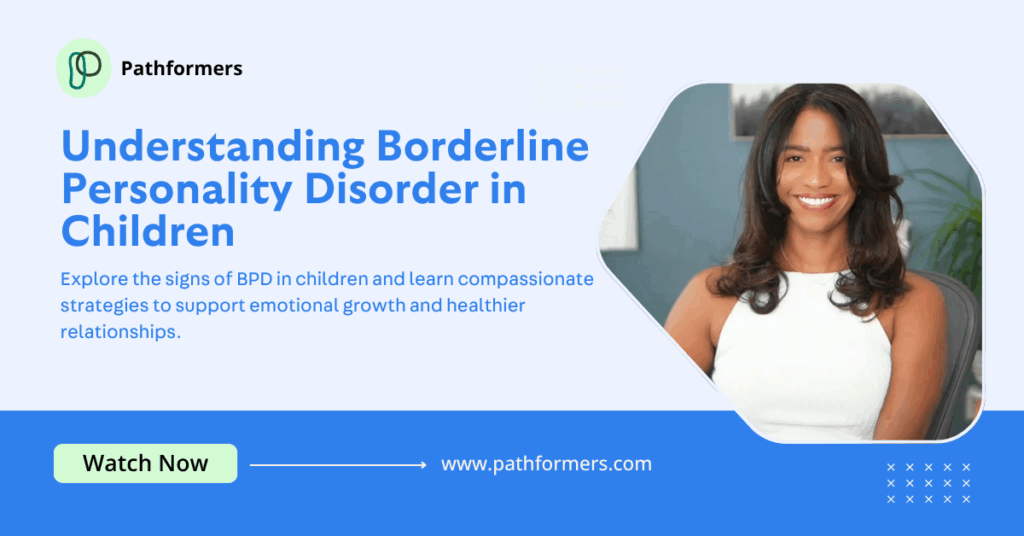Navigating the complexities of Borderline Personality Disorder (BPD) in children requires compassion and knowledge. This video introduces the history and core manifestations of BPD, including challenges in relationships, mood regulation, and self-identity. You’ll gain insights into the criteria for diagnosis and learn supportive strategies to help your child manage their emotions and build healthier connections.
Understanding Borderline Personality Disorder in Children
Common Pain Points
Lorem ipsum dolor sit amet, consectetur adipiscing elit, sed do eiusmod tempor incididunt.
Understanding and Recognizing BPD Symptoms in Children
Parents may struggle to recognize the early signs of Borderline Personality Disorder (BPD) in their children, especially when the symptoms overlap with other emotional or behavioral challenges. The difficulty of distinguishing between normal developmental stages and potential early signs of BPD can delay necessary interventions and support.
Fear of Emotional Instability and Unpredictable Reactions
Parents may feel constantly on edge, fearing that they will trigger emotional outbursts or destabilizing reactions from their child. The emotional volatility that characterizes BPD can create a sense of helplessness and frustration for parents, especially when they are unsure how to handle their child’s reactions effectively.
Difficulty Managing Interpersonal Relationships with the Child
Children exhibiting BPD traits may struggle with intense and unstable relationships, leading to conflicts with parents and others. These children might display extreme idealization or devaluation of others, which can cause parents to feel both overwhelmed and inadequate in managing these complex dynamics.
Module Benefits
Lorem ipsum dolor sit amet, consectetur adipiscing elit, sed do eiusmod tempor incididunt.
Early Identification and Understanding of BPD Symptoms
This module provides a thorough exploration of BPD in children, helping parents identify early signs and symptoms. Understanding how BPD manifests in children, particularly in areas such as interpersonal relationships, mood states, and self-identity, will equip parents with the knowledge to respond appropriately and seek timely interventions.
Strategies for Managing Emotional Reactions and Supporting Stability
Parents will learn effective strategies for managing emotional dysregulation in their children. This includes understanding how to avoid emotional triggers, setting appropriate boundaries, and using compassionate communication to support their child's emotional stability, fostering a safer and more predictable environment.
Building Compassionate, Supportive Relationships
The module will guide parents in developing strategies for fostering healthy, supportive relationships with their children. Parents will learn how to balance compassion with clear boundaries, offering a sense of security while helping children navigate their challenges in a way that encourages emotional growth and resilience.
Help Steer Your Child’s Development
Subscribe to our newsletter for exclusive video updates, expert parenting strategies, and the latest insights in child development and mental health.

